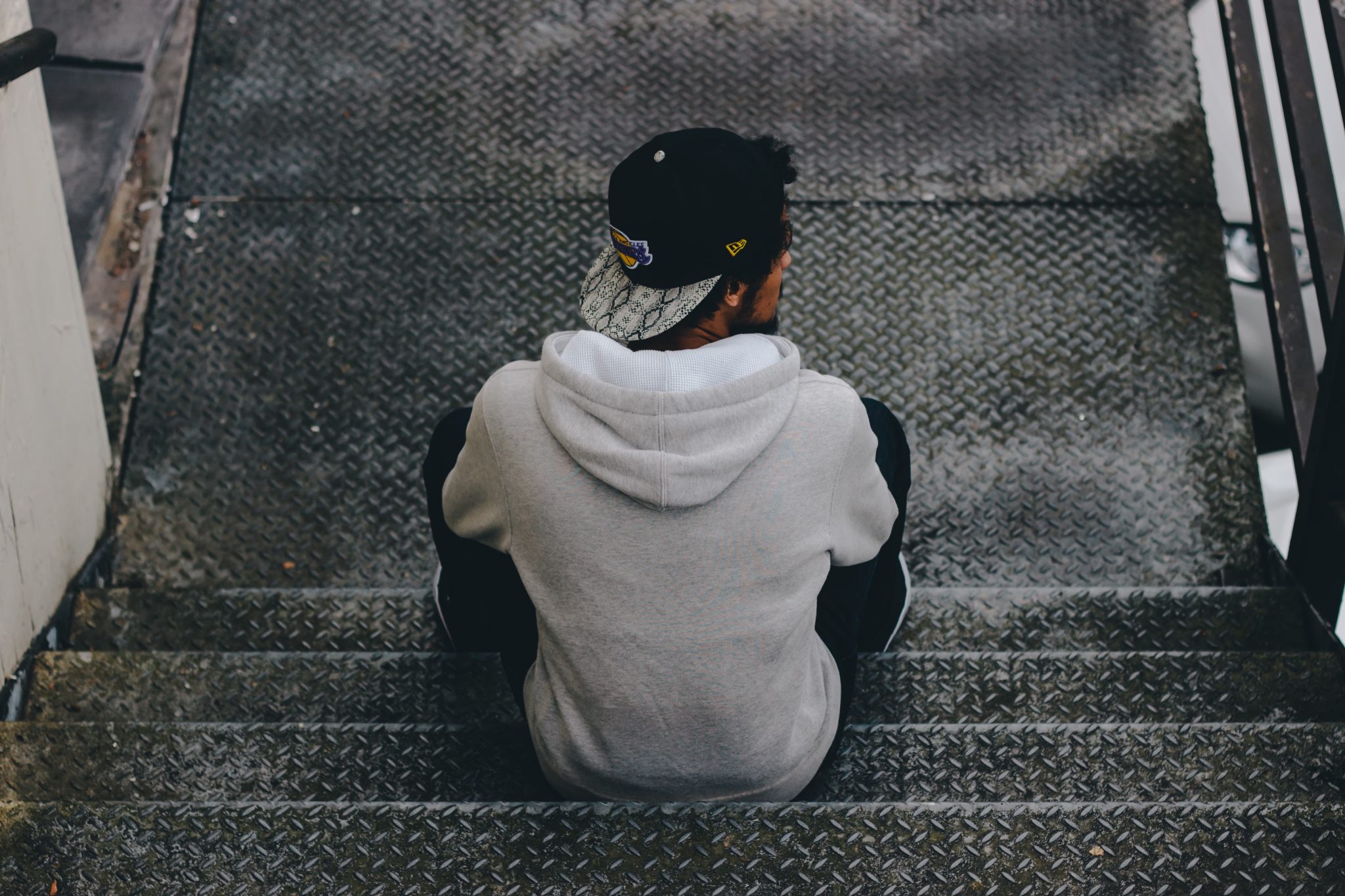How to manage & cope with your comedown
Understand drug comedowns, their causes, and how to ease their effects.

Introduction
Drug use, whether recreational or habitual, often comes with a lesser discussed yet profoundly impactful side effect: the comedown.
While the initial perceived high may be the desired experience, the comedown is the body and mind’s way of trying to recalibrate—a stark reminder of the drug’s temporary nature.
This article explores the phenomenon of drug comedowns, from what they are to what causes them, and offers practical insights for managing and coping with these challenging moments.
What Is a drug comedown?
A drug comedown is the period after the effects of a drug wear off when the user begins to feel the psychological and physical consequences of their use.
Think of it as the “hangover” of drug use—a transitional state as your body attempts to restore balance.
Unlike the euphoric highs, comedowns can be unpleasant, leaving individuals feeling drained, anxious, or even regretful.
These feelings are not just random; they reflect the brain and body’s response to substance-induced chemical changes.
Many believe that drug withdrawal is difficult and unpleasant, and this belief would create a tremendous fear of quitting drugs for anyone, but withdrawal is not as bad as people fear.
Read on to learn more.
What does a drug comedown feel like?
The sensations of a comedown vary depending on the drug taken, the individual’s physical state, and external factors like sleep, hydration, and stress levels.
Common feelings include:
-
Physical exhaustion
A heavy, sluggish feeling, often accompanied by muscle aches or headaches.
-
Low mood or depression
The brain’s depletion of dopamine can lead to feelings of sadness or apathy.
-
Anxiety or irritability
A heightened state of tension or unease.
-
Mental fog
Difficulty concentrating or processing thoughts.
For some, the comedown can feel like a dark cloud hanging over their day, while for others, it’s an intense crash that disrupts sleep and daily functioning.
Many believe that drug withdrawal is difficult and unpleasant, and this belief would create a tremendous fear of quitting drugs for anyone, but withdrawal is not as bad as people fear.
The reality is that drug users go into withdrawal whenever they finish taking their drug. It is an illusion that there is physical withdrawal pain from the drug itself. We are never badly addicted to the chemical itself.
Perhaps you feel that you have to suffer a few days of withdrawal to get free.
The fact is that the really unpleasant aspects of withdrawal are not caused by the drug itself but because the person taking it believes the drug is a crutch and a pleasure that they must resist for the rest of their lives.
All this creates an awful tug-of-war in their mind: on the one hand they want to take the drug, while on the other they know that if they do use it will destroy them.
We don’t dispute that mental stress can create powerful physical symptoms – sweating and shaking, just as a child that has been deprived of its toy will exhibit similar pronounced physical symptoms that in themselves have no real physical cause.
The cause is mental: the child is focussing on what it can’t have, to the exclusion of everything else.
Read on to learn more
What causes a drug comedown?
The primary driver of a drug comedown is the way substances interact with your brain chemistry.
Many recreational drugs flood the brain with neurotransmitters like dopamine and serotonin, creating a sense of euphoria.
However, once the drug leaves your system, these levels plummet.
Additional contributing factors include:
-
Sleep deprivation
Many drugs disturb normal sleep patterns, leaving the body in a state of exhaustion.
-
Dehydration and nutrient depletion
Substances like alcohol, MDMA, and stimulants dehydrate the body and deplete essential vitamins and minerals.
-
Stress on the body
Drugs like cocaine and amphetamines put the cardiovascular system under strain, leading to a rebound effect as the body attempts to recover.
-
Underlying mental health conditions
Anxiety or depression may intensify during a comedown.
How long does a drug comedown last?
Many believe that drug withdrawal is difficult and unpleasant, and this belief would create a tremendous fear of quitting drugs for anyone, but withdrawal is not as bad as people fear.
The reality is that drug users go into withdrawal whenever they finish taking their drug. It is an illusion that there is physical withdrawal pain from the drug itself. We are never badly addicted to the chemical itself.
Perhaps you feel that you have to suffer a few days of withdrawal to get free.
The fact is that the really unpleasant aspects of withdrawal are not caused by the drug itself but because the person taking it believes the drug is a crutch and a pleasure that they must resist for the rest of their lives.
All this creates an awful tug-of-war in their mind: on the one hand they want to take the drug, while on the other they know that if they do use it will destroy them.
We don’t dispute that mental stress can create powerful physical symptoms – sweating and shaking, just as a child that has been deprived of its toy will exhibit similar pronounced physical symptoms that in themselves have no real physical cause.
The cause is mental: the child is focussing on what it can’t have, to the exclusion of everything else.
Of course, if the parent gives in to the child and lets it have its toy, those symptoms will disappear in an instant.
The traditional stated duration of a comedown depends on the substance used, dosage, and individual factors like metabolism and overall health but as explained the biggest issue is mental and if that is fixed then the withdrawal / comedown is not as bad as you fear.
-
Stimulants (e.g., cocaine, MDMA)
Comedowns typically last 1-3 days, though emotional symptoms may linger longer.
-
Depressants (e.g., alcohol, benzodiazepines)
Symptoms may last 1-2 days.
-
Psychedelics (e.g., LSD, mushrooms)
While not known for harsh comedowns, users may feel emotionally drained or mentally fatigued for a day or two.
For chronic or heavy drug users, the comedown can blend into withdrawal symptoms, potentially lasting weeks or months.
How to help a comedown
Addiction to drugs is mainly psychological rather than physical. At Allen Carr’s Easyway to Quit Drugs, we address addiction from a unique perspective—removing the perceived benefits of the substance.
Rather than focusing on scare tactics or willpower, our approach helps individuals understand that the “pleasure” of the drug is an illusion.
By shifting your mindset, we empower you to break free without feeling deprived or reliant on substitutes.
This approach means that we help deal with the mental aspect of addiction which is the main cause for most peoples of the comedown and by dealing with that the withdrawal is not as bad as you might fear.
Key elements of our approach:
- Removing fear
Addiction thrives on the fear of quitting. We dissolve this fear, making the process easy and enjoyable.
- Empowerment
You’ll discover freedom from drugs without feeling the need to “fight” cravings.
- Understanding
We help you see drugs for what it really is—a trap—and guide you to a life free from its grip.
For anyone struggling with drug addiction, reaching out for help is the first step to freedom. With the right tools, overcoming addiction doesn’t have to be a struggle—it can be a liberation.
While the best way to avoid a comedown is to abstain from drug use altogether, we understand that people may seek ways to alleviate its effects. Here are some practical tips:
-
Prioritise rest and recovery
Your body needs time to recover. Create a calm, quiet environment and allow yourself to sleep or relax. Sleep is essential for restoring brain chemistry and physical health.
-
Stay hydrated
Drink plenty of water or electrolyte-replenishing drinks to combat dehydration. Avoid caffeine, as it can worsen anxiety or irritability.
-
Nourish your body
Consume nutrient-dense foods, such as fruits, vegetables, and lean proteins. Bananas, eggs, and nuts are particularly good for replenishing serotonin levels.
-
Practice gentle movement
Light activities like walking or yoga can stimulate endorphin production, lifting your mood and reducing physical tension.
-
Connect with support
Reach out to someone you trust to share how you’re feeling. Talking to a friend or counsellor can ease emotional strain.
-
Avoid redosing
While it may be tempting to take more of the drug to counter the comedown, this is the trap and will not help you to freedom and can worsen symptoms in the long term and lead to dependency.
-
Explore long-term solutions
If comedowns are frequent and severe, it may be time to evaluate your relationship with drug use. Allen Carr’s Easyway to Quit Drugs approach helps individuals overcome addiction by removing the desire to take substances, freeing you from the cycle of highs and comedowns.
- Final Thoughts
Experiencing a drug comedown can be unsettling, but it’s also an opportunity to understand the impact of substances on your body and mind.
If you’re ready to explore a life free from the rollercoaster of drug use and comedowns, Allen Carr’s Easyway to Quit Drugs offers a proven, empowering approach to liberation without willpower or withdrawal.




